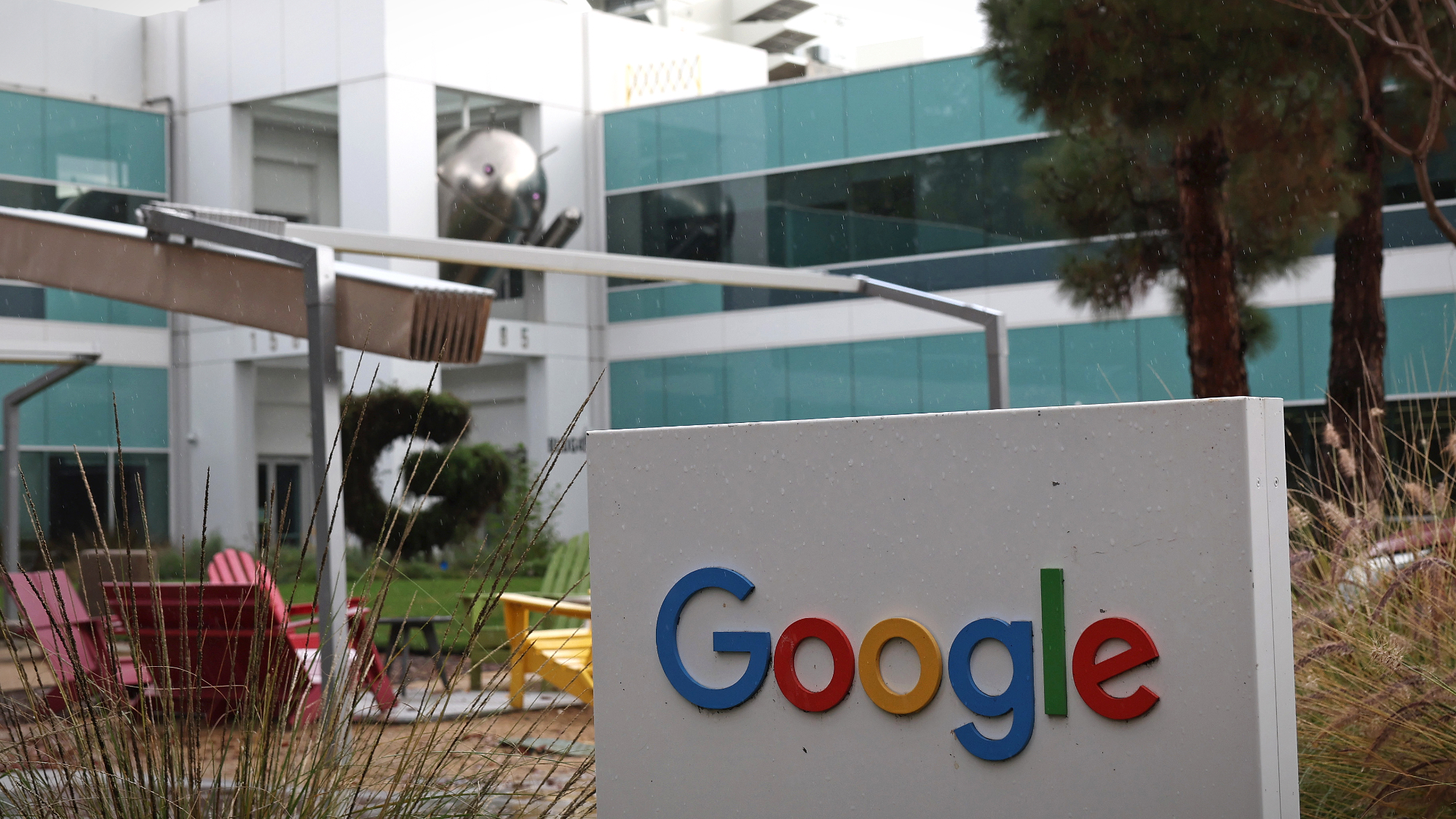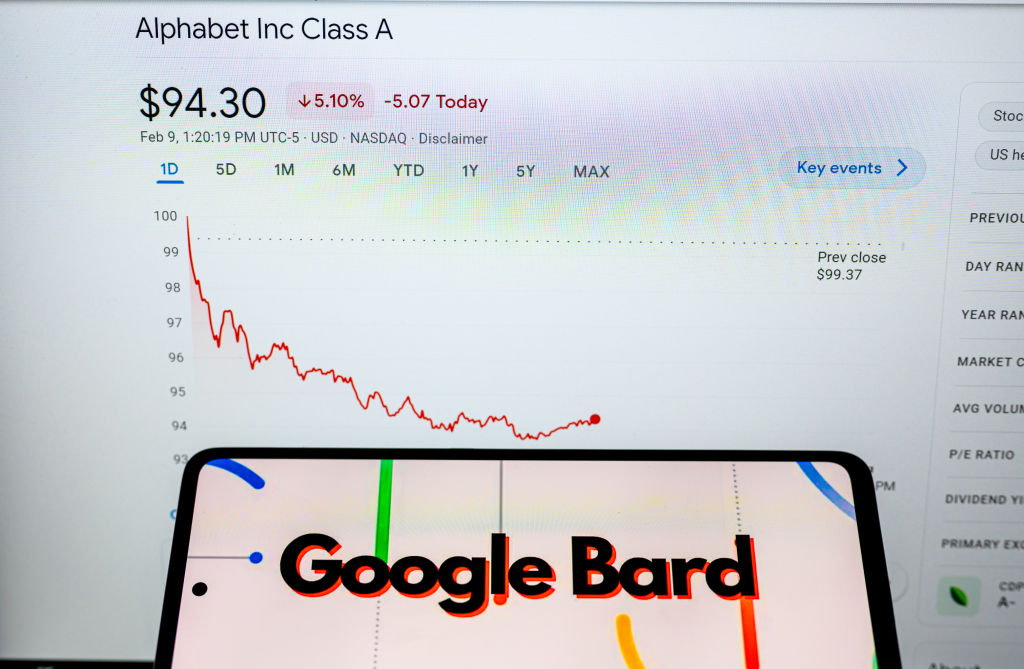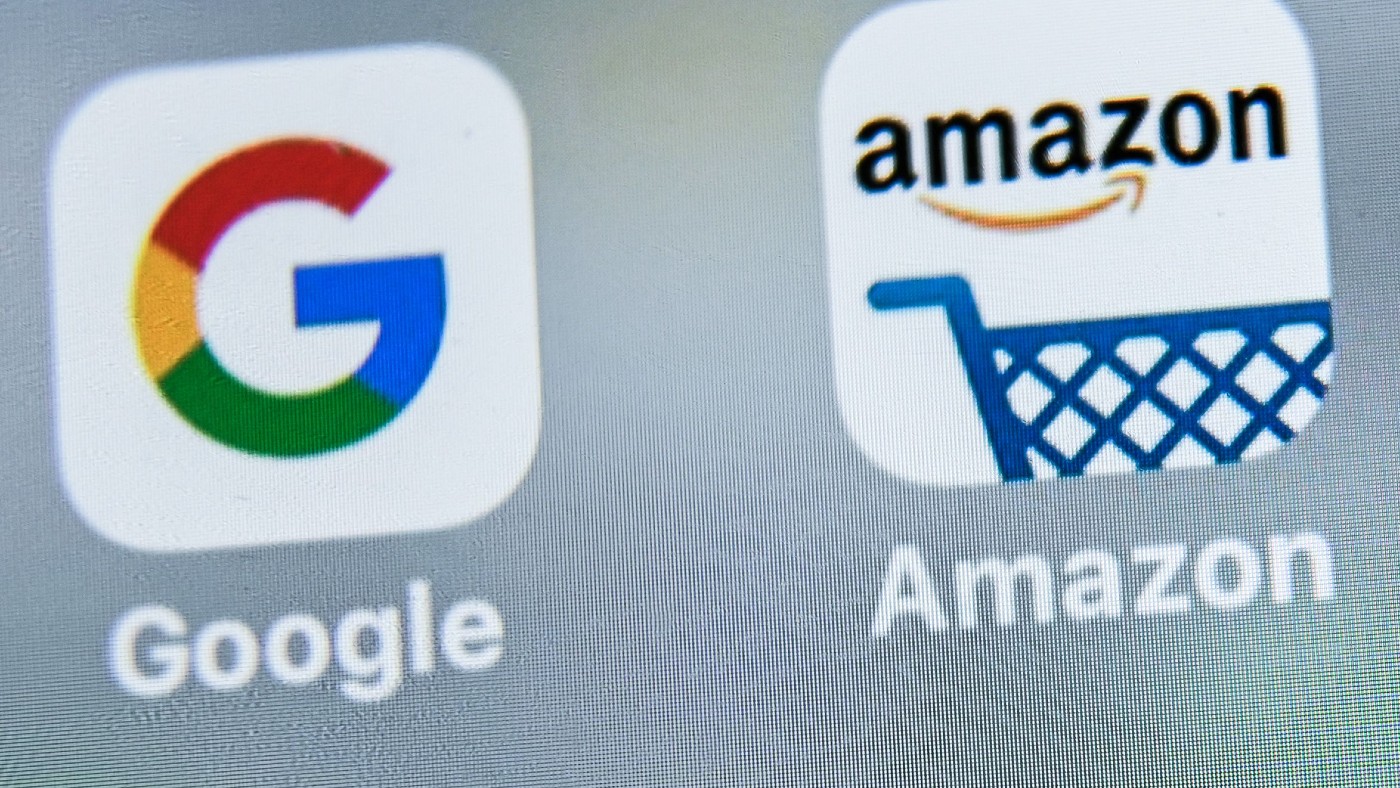Google fined £2.1bn in record EU competition penalty
Tech giant has just 90 days to change practices or face an even bigger punishment

A free daily email with the biggest news stories of the day – and the best features from TheWeek.com
You are now subscribed
Your newsletter sign-up was successful
The US search engine Google has been hit with a record fine by the European Commission that is more than double the previous highest penalty for competition law breaches.
The company was fined €2.4bn (£2.1bn) for abusing its search engine dominance in Europe by prioritising its own comparison shopping services. This could have helped it get a near-75 per cent share of advert "clicks".
The previous highest fine was the €1.1bn (£970m) handed to the chipmaker Intel in 2009.
The Week
Escape your echo chamber. Get the facts behind the news, plus analysis from multiple perspectives.

Sign up for The Week's Free Newsletters
From our morning news briefing to a weekly Good News Newsletter, get the best of The Week delivered directly to your inbox.
From our morning news briefing to a weekly Good News Newsletter, get the best of The Week delivered directly to your inbox.
Google's penalty follows a seven-year investigation into claims that it routinely puts its own comparison shopping service to the top of shopping-related search results.
The Commission cited figures showing the first page of search results accounts for 95 per cent of clicks. Figures also show that the top search result alone accounts for 35 per cent.
"When you search Google for products like 'handbags' or 'televisions', you will see a prominent and picture-filled box showing deals from various retailers," says the Daily Telegraph.
"This service is run by Google and the company takes a cut of sales."
A free daily email with the biggest news stories of the day – and the best features from TheWeek.com
According to the BBC, one study found that the Google service accounts for 74 per cent of clicks on adverts placed on shopping results pages. The firm's own data is thought to suggest that the real click rate is far lower.
Some might think that Google, as a private company, has the right to prioritise its own services. But as search engines are the primary method people use to shop online – and Google controls a dominant market share of around 90 per cent right across Europe – it's required to ensure a level playing field.
The penalty is based on revenues earned from the allegedly unlawful activity. The firm could face a higher fine of up to 10 per cent of Google parent Alphabet's annual revenue of around £71bn if it doesn't change its ways within 90 days.
Even bigger than the fine is the long-term effect of Google having to change the way it runs its business across the whole of Europe, say analysts.
All of this might prove to be a bit premature, however, as the tech giant is almost certain to appeal the verdict. A legal challenge could take us "well into the 2020s", says The Independent.
Google said in a statement: "We respectfully disagree with the conclusions announced today. We will review the Commission's decision in detail as we consider an appeal, and we look forward to continuing to make our case."
Google faces years in court over EU competition claims
3 November 2016
Tech giant Google will be forced to respond in court to accusations it has violated EU competition law by unfairly favouring its own products over those of rivals.
What is the EU claim?
Commissioners say search results promote Google's own products over its rivals and that the company "abuses the dominance of its Android operating system", according to the Financial Times.
Google maintains that none of its activities violate competition law and says it treats rivals fairly.
What are the possible sanctions?
If Google is found to have violated competition law, it could be fined up to £6bn - ten per cent of its global revenue in 2015. However, a decision is not expected until at least mid-2017 and appeals could prolong the final judgement for years.
What does this mean for Google?
Whatever the eventual outcome, the New York Times reports the case is likely to "define Europe's at times frosty relationship with Google and other American tech giants".
There has long been consternation among US politicians at what is seen as a biased attitude from European authorities towards American multinationals, with accusations that the bloc is overly protectionist.
What if Google wins?
"No matter what happens, antitrust is part of the picture for Google for many more years," Ioannis Lianos, a professor of global competition law and public policy at University College London, told the NYT.
"Even if Google wins, the fact that they are spending resources on this will affect [its] commercial thinking."
Google faces record €3bn fine for 'monopoly' abuse in Europe
16 May
The European Commission is set to hand Google a record-breaking fine for monopoly abuse after a seven-year investigation into the company's dominant search engine, which controls 90 per cent of search engine traffic.
Sources close to the investigation say that while the final figure has yet to be agreed it could be as much as €3bn. The maximum fine possible is €6.6bn, around a tenth of Google's total annual sales, a figure considerably higher than the European Commission's fiercest anti-trust punishment to date – the €1.1bn fine levied on the chip-maker Intel.
The news marks a "watershed moment" in Silicon Valley's competition battle with Brussels and follows another charge for unlawfully promoting its own price comparison service in general search results, says the Daily Telegraph.
Google is accused of abusing what is in effect a monopoly position in Europe, where the web giant is thought to attract more than 90 per cent of all search traffic. European watchdogs are concerned that with that sort of market dominance and the control of the algorithms that drive search results, the company can prevent there being any effective competition for its commercial services.
In addition to the fine, Google will also be banned from continuing to manipulate search results in order to favour itself and harm its rivals, while the commission "may also seek to make an example of the company over changes to its algorithms during the investigation that made it even harder for competitors to thrive", The Telegraph reports.
Last week Fortune said that the intense anti-trust scrutiny Google faces in Europe "may spill" into the US after Politico revealed that the Federal Trade Commission had restarted discussions about whether the company has abused its position as the country's dominant search engine by favouring its own products over competitors in search results.
Google is also subject to headlines this morning relating to its controversial tax affairs in the UK.
The Church of England has published its latest accounts showing that it invested millions of pounds into Google's parent Alphabet, which is among its top 20 holdings. The Times adds that the Church's annual report notes it "has not raised the issue of tax avoidance with Google despite its ethics policy urging 'investor engagement' with any company that appears to be avoiding tax".
-
 Quentin Deranque: a student’s death energizes the French far right
Quentin Deranque: a student’s death energizes the French far rightIN THE SPOTLIGHT Reactions to the violent killing of an ultra-conservative activist offer a glimpse at the culture wars roiling France ahead of next year’s elections.
-
 Secured vs. unsecured loans: how do they differ and which is better?
Secured vs. unsecured loans: how do they differ and which is better?the explainer They are distinguished by the level of risk and the inclusion of collateral
-
 ‘States that set ambitious climate targets are already feeling the tension’
‘States that set ambitious climate targets are already feeling the tension’Instant Opinion Opinion, comment and editorials of the day
-
 Google loses antitrust suit, declared 'monopolist'
Google loses antitrust suit, declared 'monopolist'Speed Read A federal court has ruled that Google illegally dominated the internet search industry
-
 Lawmakers say tax prep companies illegally shared taxpayer data with Meta and Google
Lawmakers say tax prep companies illegally shared taxpayer data with Meta and GoogleSpeed Read
-
 How ChatGPT breathed new life into the internet search wars
How ChatGPT breathed new life into the internet search warsSpeed Read The AI arms race is upon us
-
 Search wars: Google's new challenge from AI
Search wars: Google's new challenge from AIfeature How will Microsoft even things up?
-
 Google didn't believe Bard AI was 'really ready' for a product yet
Google didn't believe Bard AI was 'really ready' for a product yetSpeed Read
-
 What Big Tech CEOs are saying about their companies' layoffs
What Big Tech CEOs are saying about their companies' layoffsSpeed Read Tech companies are cutting thousands of jobs. Are the top bosses owning up to mistakes or 'sidestepping the blame'?
-
 Will China’s national security crackdown end Hong Kong’s status as a big tech hub?
Will China’s national security crackdown end Hong Kong’s status as a big tech hub?feature Facebook, Twitter and Google threaten to leave over proposed data legislation
-
 Fake reviews: an industry within an industry
Fake reviews: an industry within an industryIn the Spotlight Amazon and Google are under investigation by UK watchdog the CMA